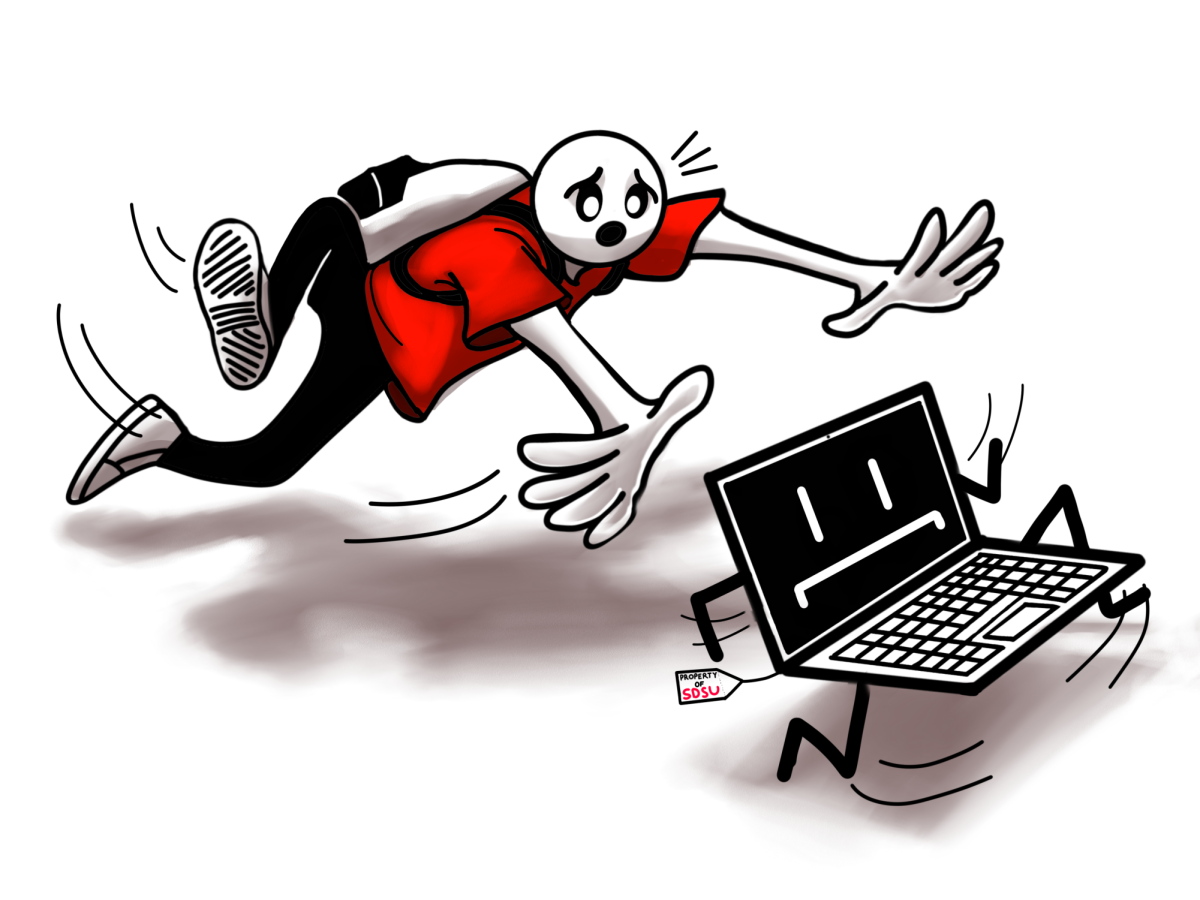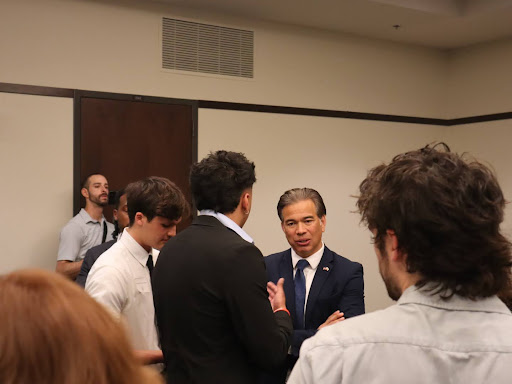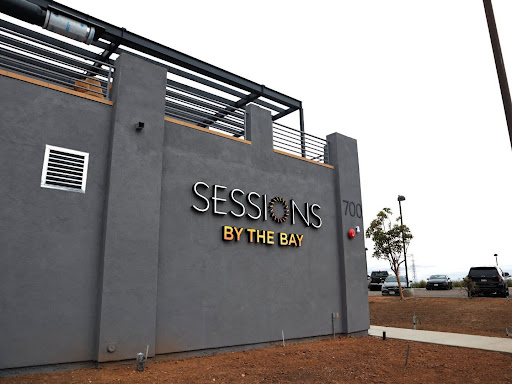On the first day of fall classes, dozens of students lined up outside the San Diego State University Library before it opened to ensure they would have a laptop for the semester.
The library has a laptop lending program that offers students MacBooks, Chromebooks and Dell Windows laptops, which they can check out, bring to classes and take home.
“On the very first day of school, we had a huge line,” Library Circulation department head Troy Compton said. “We got almost 100 to 200 laptops out at that moment. We were, for two hours straight, just checking out laptops.”
Namrata Yadav, a computer engineering master’s student, was one of those students who waited in line that day. She’s an international student from India, and it’s her first year at SDSU.
“I need [a laptop] for all my courses because I have to download software and use it and do everything on my laptop,” Yadav said.
She explained that she came early that day only because she heard from another student that the library ran out of laptops quickly. And it did – within the first day.
The library has 264 laptops, according to Compton, most of which were acquired during the coronavirus pandemic.
“Once the pandemic hit, all laptops from everywhere across campus came to the circulation desk so we can get them out to students immediately,” Compton said. “So I think we had about 360 at one point, maybe even more.”
Since then, Compton said they haven’t received any more devices, and they’re losing laptops each year to cracked screens, broken keyboards and malfunctioning components. Some of the oldest laptops date back to 2015, according to the SDSU Library website.
“They’ve been dying, little by little,” said circulation desk supervisor Adrian Montano, who runs the program alongside Compton. “Either the license or warranty have expired or they’ve just been breaking.”
Both Compton and Montano agreed that the number of laptops they have right now is not enough, and they said students come to the library looking to check out a laptop every day.
Ryan Kaufman, a third-year graphic design major who works at the library’s front desk said that he’s asked all the time if the library has laptops.
“The first month of school, it’s probably half of the questions we get,” Kaufman said.
It isn’t surprising that SDSU students are looking for a way to borrow a free laptop for school; 53% of SDSU students receive financial aid, according to the College Board, and laptops are expensive.
Compton said the library keeps some laptops in stock and reserves them for use by the Economic Crisis Response Team.
The crisis response team connects students in financial need to helpful resources on and off campus. It partners directly with the library to try to get laptops to the students who need them most.
When the SDSU Library runs out of laptops, the crisis response team has to turn to other options, such as helping students get technology from the San Diego City and County libraries.
The SDSU Library does not have a budget to purchase more laptops. The library purchased 300 laptops during the pandemic with the Higher Education Emergency Relief Fund, according to senior director of media relations Cory Marshall. That fund was meant to help students with fully online learning and isn’t renewable.
“This program’s never had a budget,” Compton said. “It’s just been, ‘Here’s a bunch of laptops. Check ‘em out.’”
The budget situation is similar at the University of California San Diego, according to Dani Brecher Cook, an associate university librarian.
Their library laptop lending program has no recurring budget either, but they did receive a grant for 75 new Dell laptops from the UC Office of the President this summer.
Cook said that UCSD reserves all its laptops for students with financial need, but the 75 new laptops won’t be enough to meet the student need.
At SDSU, Compton said he spoke with Library Dean Scott Walter about a potential way to get more laptop funding. Walter proposed an idea to work with Associated Students to increase the $25 library services fee that students pay with their tuition.
If the fee was increased, that extra money would go entirely to student services such as course reserves, student library employees and potentially equipment.
Marshall said in an email that the library services fee is being currently studied, as it hasn’t been adjusted in 13 years.
Compton said this is the only potential route for the library to get more laptops.
“[But] it doesn’t appear that we’re going to get fresh, new laptops anywhere in the near future,” Compton said.
Compton and Montano said they understand the importance of having a laptop for school and they want the laptop lending program to help alleviate financial stress.
“We understand because we were both students,” Compton said. “I remember I had like $10 in my bank account, so if my laptop broke, I’d be screwed. So I understand that feeling, that stress.









